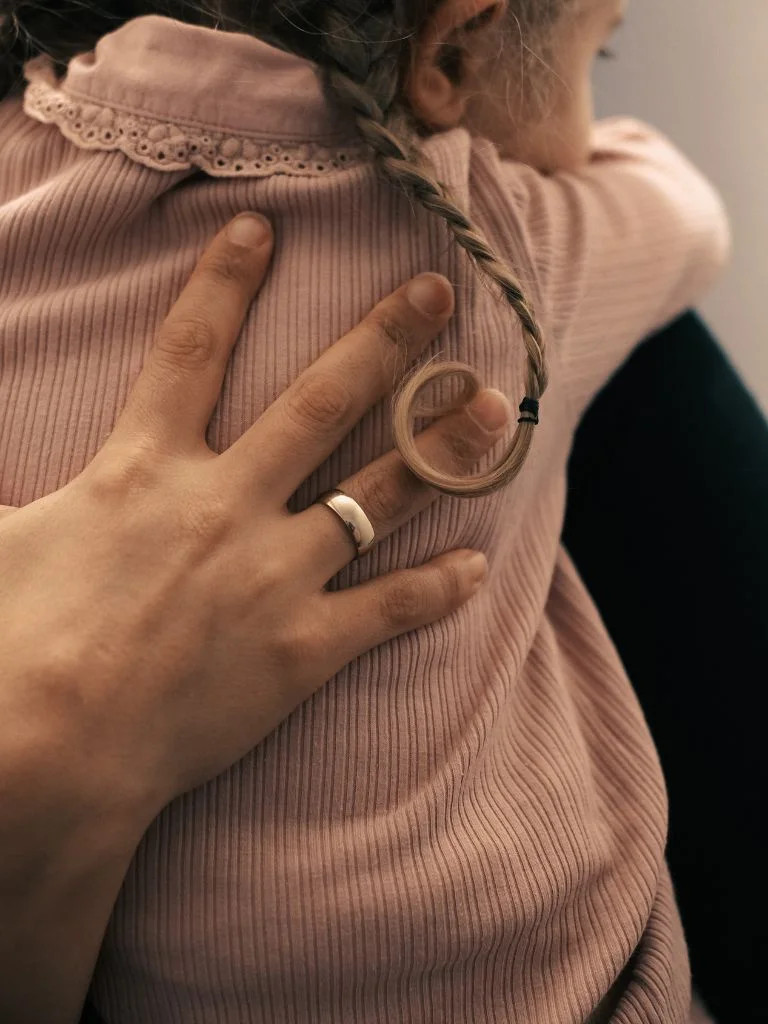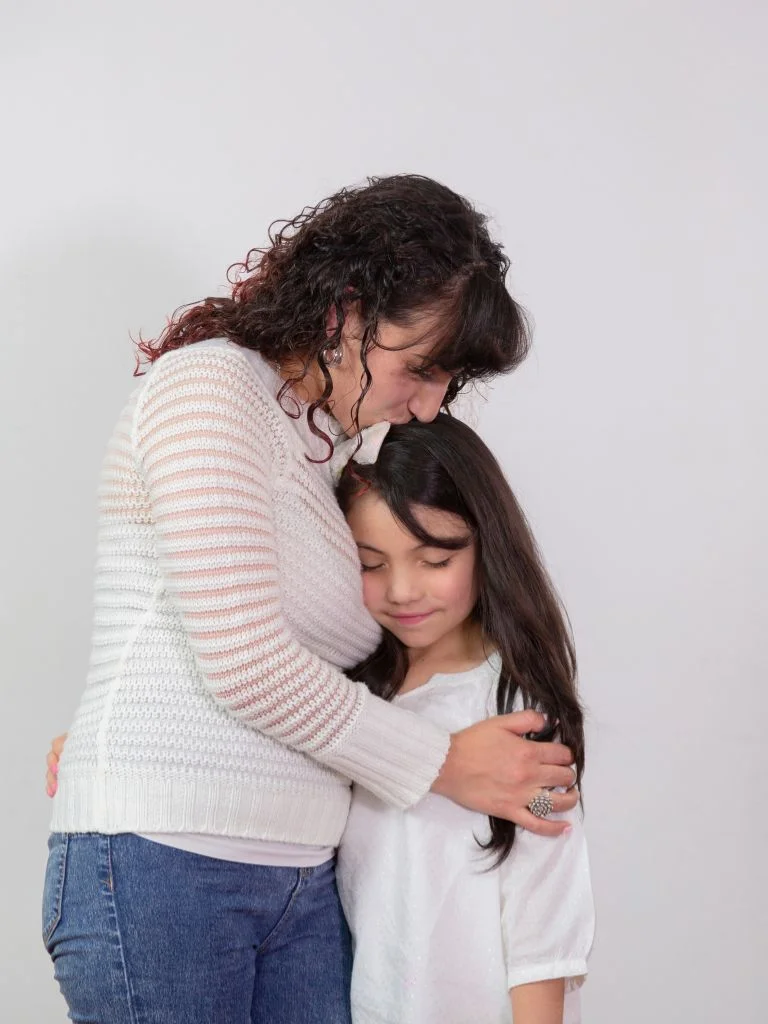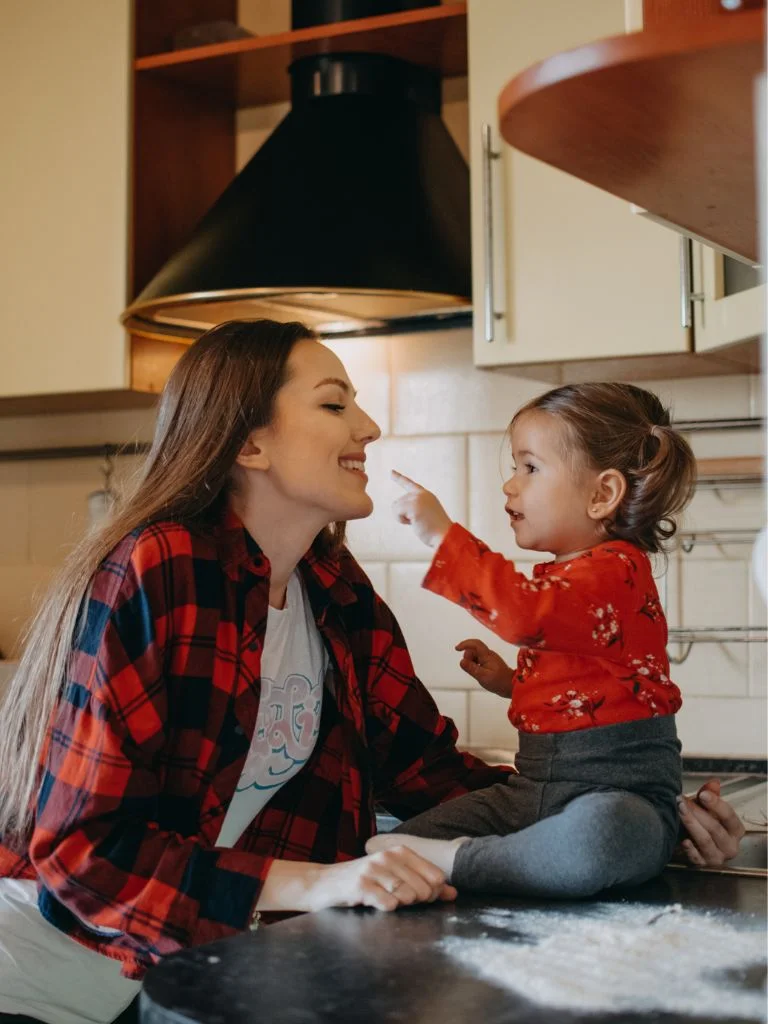Parenting without punishment means guiding your child’s behavior through connection, boundaries, and emotional coaching — not through threats, bribes, yelling, spankings, or time-outs.
It’s also sometimes called gentle parenting, conscious parenting, or respectful discipline. And while it sounds lovely, living it daily is messy, honest, and so, so worth it.
It’s not permissive. You’re still in charge. You’re just choosing influence over intimidation.
Why I Ditched Time-Outs, Spankings, and Threats
There was a phase when I tried everything — sticker charts, consequences, “calm-down corners,” even counting to three (which just made my kid sprint toward chaos faster).
And then one day, my 4-year-old told his baby sister: “If you throw that again, you go to your room. I don’t care if you cry.”
Oof. Mirror held up. I realized he was parroting me. Not my best moment.
That’s when I knew — I had to shift from managing behavior to understanding emotions. From control to connection.
What Happens When You Stop Punishing Kids?
Here’s the honest truth: it gets harder before it gets better.
When I stopped punishing, I felt like my house turned into a circus. Why? Because my kids were testing the new safety net. “Are you still going to love me when I mess up?” That’s what they were really asking.
But after a few weeks, the tantrums shortened. The power struggles faded. They started coming to me when they were upset, instead of lashing out.
And I stopped feeling like a drill sergeant yelling into the void.
How to Discipline Without Punishments?
Here’s how to discipline your kid without punishing (what really worked for me):
1. Connect First — Always.
Before correcting, I connect. A gentle hand on the shoulder. Eye contact. A breath together. When my child is melting down over the blue cup (again), I kneel and say, “You’re upset because you wanted the blue cup. I hear you.”
Sounds too soft? Trust me — it works. Once a child feels seen, their nervous system calms, and their “thinking brain” turns back on.
2. Set Clear, Kind Boundaries.
No, parenting without punishment doesn’t mean your kid gets to hit you and eat cookies for breakfast.
It means saying, “I won’t let you hit. I’m going to move you to keep us both safe,” instead of “If you hit me again, you’re not going to Grandma’s.”
Kids need boundaries — they just need them set with empathy, not fear.
3. Let Natural Consequences Do the Teaching.
Instead of dishing out made-up punishments, I let real-life do the talking.
Like when my daughter refused to wear a jacket. Instead of forcing it, I let her feel the chill (with a spare jacket in my bag, because: mom). Next time? She grabbed her coat before I even asked.
4. Model the Behavior I Want.
Ever shouted “STOP YELLING!”?
Yep. Me too.
Now, I try to embody calm during chaos. I breathe. I narrate my feelings. I apologize when I mess up (which is often). My kids have learned way more from my reactions than my lectures.
5. Validate Feelings Before Correcting Behavior.
Kids act out when big emotions take over — and if we skip straight to discipline, they don’t feel heard.
So now, when my 6-year-old snaps at her brother, I don’t immediately jump in with, “Don’t talk like that!”
Instead, I say, “It sounds like you’re frustrated. Want to tell me what’s going on?” Once she feels understood, she’s way more open to problem-solving. The correction still happens — but after the connection.
It’s wild how much behavior shifts when a child feels emotionally safe.
6. Use Playful Redirection (especially with toddlers).
Toddlers aren’t exactly big fans of being told “no” for the tenth time in a row — but they do respond to playful energy.
So when my 3-year-old starts climbing the bookshelf, instead of snapping, “Get down right now,” I’ll say something like, “Hey, let’s climb the couch cushions instead — I’ll race you!” It keeps things light, gets him moving in a safer direction, and avoids a total meltdown.
Redirection doesn’t mean avoiding discipline — it just means guiding them without the drama.
What to Say Instead of “Go to Your Room!”
Here are some real-life swaps that have helped me:
| Instead of… | Try saying… |
|---|---|
| “You’re being bad!” | “Looks like you’re having a hard time. Let’s figure it out together.” |
| “Go to your room!” | “I’m going to help you take a break so we can both calm down.” |
| “That’s it, no TV!” | “It seems like your body needs to move. Let’s run around outside for 10 minutes.” |
| “If you don’t listen, no dessert!” | “We’ll have dessert after dinner when your plate is cleared.” |
But Don’t They Need to Learn Consequences?
Yes — just not punishments. There’s a big difference.
Punishments are about shame, blame, and control. They create fear-based compliance. Consequences — when rooted in real-life experiences — teach responsibility and empathy.
I want my kids to make good choices because it feels good and makes sense — not because they’re scared of me.
Final Thoughts:
Parenting without punishment doesn’t mean being perfect.
I’ve snapped. I’ve bribed with lollipops. I’ve said things I regretted the moment they left my mouth.
But every time I mess up, I repair. I say, “I was feeling overwhelmed, and I yelled. That wasn’t okay. You didn’t deserve that.” That repair? It teaches my kids that mistakes are part of relationships — and we grow through them.
My home feels safer. My kids feel seen. And I feel less like a referee and more like a guide.
It’s not about being soft. It’s about being strong and kind.






